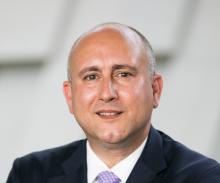The first requirement of great comedy is timing: with great timing, an average gag becomes a rib-tickler; get the timing wrong and the best joke elicits only yawns. Good timing transforms the average into the extraordinary.
So it is with investing and M&A. And in the current crisis, we are beginning to see some large transactions that will make sense only if the timing proves to be right. But we will not know until the future, perhaps some years out, whether the buyer or the seller got that timing right.
Regulatory filings in the US revealed this week that the Public Investment Fund (PIF), the sovereign wealth fund of Saudi Arabia, has taken some hefty positions in household-name stocks: $713.7 mn in Boeing, $495.8 mn in Disney and $521.9 mn in Facebook, an $827.7 mn investment in British oil giant BP via ADRs listed in the US, $487.6 mn in Bank of America and $522 mn in Citigroup.
Other positions recently taken include $513.9 mn in Marriott International and $78.4 mn in Warren Buffett’s Berkshire Hathaway, along with stakes in Pfizer and Starbucks. They join the 8.2 percent investment in Carnival Cruise Line revealed in April. All told, the fund is estimated to have spent almost $8 bn in the first quarter on new investments.
The PIF is banking on its sense of timing to deliver returns: the stock prices of these large, well-known and highly successful companies took a battering in the early days of the Covid-19 crisis, like almost every other stock in the world. By making its move when valuations were low, the cash-rich PIF should be able to show a healthy return, purely through its sense of timing.
On the other side of this trade, other institutions are hoping the timing of their sell orders will be proved wise with hindsight.
Last week, PNC, America’s ninth-biggest commercial bank, announced the sale of its entire 22 percent stake in the world’s largest asset manager BlackRock, a stake it has held for 25 years. The bank suggested it could use the funds to make opportunistic acquisitions. Whether that comes to fruition or not, the estimated $17 bn value of the stake has given PNC a ‘bulletproof’ balance sheet, in the words of CEO Bill Demchak.
He outlined the rationale behind the sale in an interview a few days later: ‘As we entered this crisis, it became clear that everything we thought we knew was proven incorrect. We’re in this economy where everybody bases their model predicting the future on the past, and of course we’ve never been in a situation where we have [in effect] been forced to shut down on the economy with this much fiscal stimulus.’
In other words, the time of most uncertainty was the optimum timing to make the sell decision.
‘I can’t stress the importance of being able to play offense in that environment,’ Demchak continued, giving a clue as to the renewed confidence in uncertainty that the cash has brought.
Other high-profile sales in recent weeks have included the exit by Warren Buffet’s Berkshire Hathaway of its stakes in various US airlines and Goldman Sachs.
While some buy and others sell, trusting that their sense of timing will be correct, others walk away from transactions doing neither because they fear the timing is all wrong.
Kuwait Finance House (KFH) suspended the acquisition of Ahli United Bank of Bahrain last month, citing difficulties in finalizing the transaction during the coronavirus outbreak. And this week Abu Dhabi’s FAB walked away from takeover talks with the Egyptian subsidiary of Lebanon’s Bank Audi.
Buy, sell, or do nothing: these are the three choices facing companies in a crisis. The PIF has pushed the button on a large buy. PNC has sold a large, strategic holding. KFH and FAB have decided the time is right to sit tight.
Only time will tell whether these choices were the right ones taken at the right time. For investors struggling to make sense of these crisis-hit times, the credibility of management and long-term growth strategies will sway their decisions. Like telling a great joke, however, the most important element in all these decisions is timing.
Oliver Schutzmann is CEO of Iridium Advisors and a regular contributor to IR Magazine










